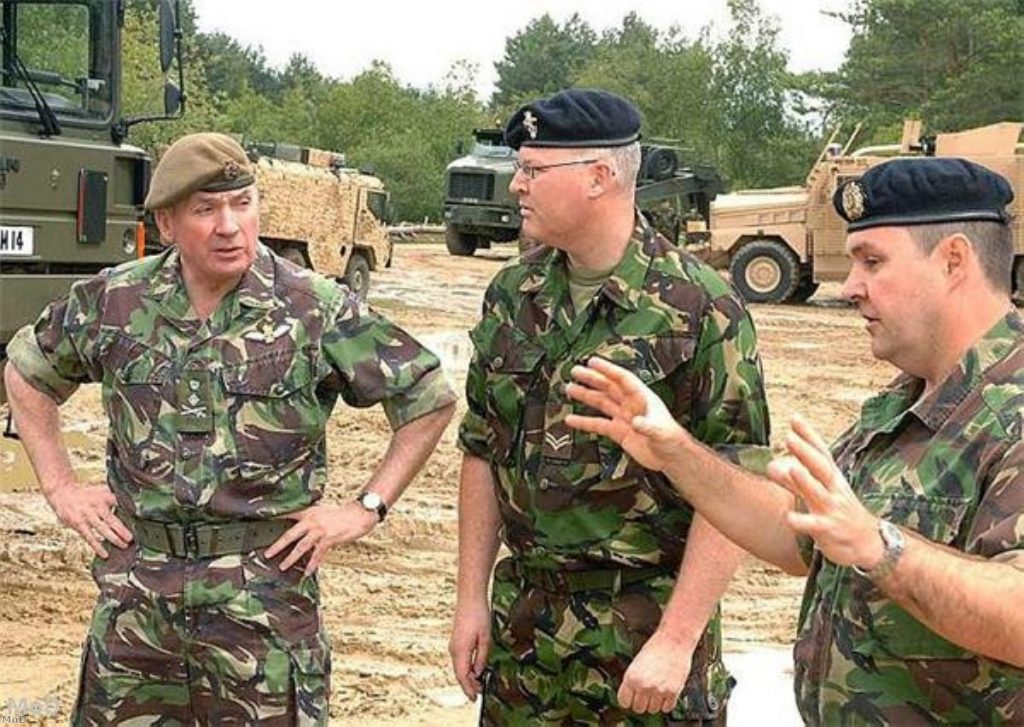‘Shadows of the 30s’: Ex-military chief raises Nazi threat in fight against Army cuts
A former head of the Army has warned the Crimea crisis' "uncomfortable shadows of the 30s" are a reason for boosting the size of the British Army.
Lord Dannatt, who was Britain's senior military officer from 2006 until 2009, called for a rethink of the coalition's move to reduce the size of the regular Army by 20,000 to 82,000 amid Russia's uncompromising actions in Ukraine.
"This is a poor moment for the US-led West to be weak in resolve and muscle," Dannatt wrote in the Daily Telegraph newspaper.
"Diplomacy and sanctions may be the right response for now to the Russian president, but he will look beyond those things to see where the real check on his actions might come from."


Dannatt pointed out Russia is a long-term ally of Bashar al-Assad in Syria and that Vladimir Putin will be "encouraged" by the UN and EU's failure to force Assad out of office.
"While economies are still struggling to recover from the epic downturn of 2008, there is a temptation to curb public expenditure further, as trailed by George Osborne in the Budget," Dannatt added.
"But to remove further resources from defence would be sending exactly the wrong message at this time.
"On the contrary, there is a strong argument to recognise that the international landscape is more challenging than in 2010, and consider making a statement that greater military capability must underpin our diplomacy."
He suggested the defence reform bill, which is currently working its way through the Lords, would be a chance to revisit the coalition's plan to recruit and train 30,000 reservists to make up for the loss.
Backbench MPs have voiced concerns about the proposals, questioning the Ministry of Defence's (MoD) ability to recruit sufficient reservists.
The average age of reservists is significantly older than that of regular troops and they are much more expensive to train per head, critics claim.
"Calls that we have the fourth largest defence budget ring hollow when we rank 30th in being able to commit troops overseas," MP John Baron wrote for Politics.co.uk earlier this month.
"A defence budget representing two per cent of GDP is simply not enough. It needs to rise to between three and four per cent."
Dannatt's calls are unlikely to be heeded by the MoD before the next election, despite political concerns emerging from those close to defence secretary Philip Hammond.
But Labour's shadow defence secretary Vernon Coaker will go further than before to outline the opposition's approach to the strategic defence and spending review (SDSR) scheduled for 2015.
Coaker will say Britain needs to be ready to tackle a growing number of threats, including cyberwarfare.
On conventional forces, however, he is expected to suggest that Britain needs to do more with less – and instead focus on projecting smart power abroad and using alliances to amplify the UK's international influence.
"We cannot afford for the next SDSR to be solely Treasury-led. Instead, we must ensure that the Review provides the long-term direction that UK defence and security requires – one that is fiscally realistic and strategically ambitious," he said.
"We are ambitious about the positive role that the UK armed forces and defence strategy can play in the world. And we are realistic in that we know we must strengthen and deepen our partnerships with existing allies, and seek to cultivate new ones, if we are to achieve our strategic objectives."












